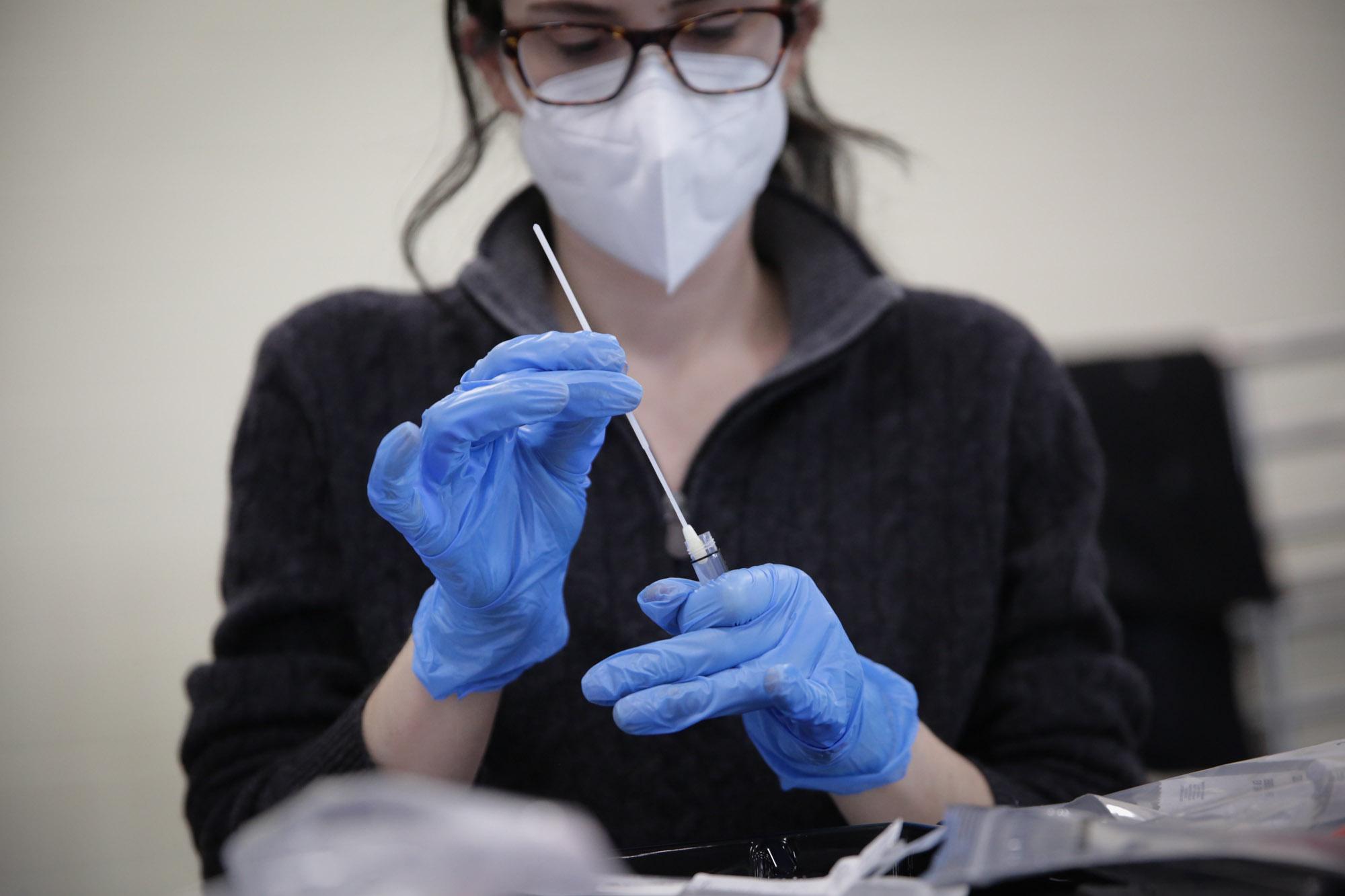
Omicron variants are moving through the state, keeping the state’s data on test positivity rate in the double-digits.
But, with many COVID-19 rapid tests being taken at home and not reported to the state, how accurate is that number? What about the other pandemic metrics, now that the state health department is changing some of its tracking. The agency also recently said a pair of big hospital systems failed to report hundreds of coronavirus hospitalizations for several months this year.
“Interpreting the surveillance statistics has gotten more complicated for sure,” said Dr. Jon Samet, the dean of the Colorado School of Public Health, which does coronavirus modeling for the state.
The state recently announced that it was going to stop tracking and reporting some COVID outbreaks in the state, namely those in businesses, and only track them in high-risk settings.
Officials with the state health department characterize this as part of the evolution of the COVID-19 response where public reporting of outbreaks will be more like they report for other respiratory diseases. The agency said it would be focusing on outbreaks in what they call priority settings — nursing homes, jails, child care and overnight camps.
“For other respiratory pathogens like influenza, we don't require that kind of weekly case update for outbreak control,” said Ginger Stringer, an epidemiologist with the agency.
Earlier in the pandemic, some states scaled back how often they reported COVID-19 data. Colorado moved from reporting COVID-19 hospitalizations daily to weekly earlier this year.
The Denver Post reported this will impact data collected and reported about outbreaks in schools and that some educators and school districts were caught off guard by the move. They worry it’ll make it harder to know what’s happening in schools — or when to take more restrictive measures — if need be.
Two hospital systems, UCHealth and Intermountain Healthcare, formerly SCL Health, failed to report hospitalization data during parts of this year. The Colorado Department of Public Health and Environment said this past week it added about 470 previously unreported hospitalizations to the state’s cumulative total. The agency didn’t say how exactly that happened but in a release said the delay in reporting these hospitalizations did not affect surveillance or its public health recommendations.
On Wednesday, the state reported 304 coronavirus patients are hospitalized with confirmed cases, far below three pandemic peaks where the figure exceeded 1,500, which included one wave in the winter of 2020 and two more last fall/winter.
“It's not overwhelming us in any way compared to what we’ve seen at previous points in the pandemic,” said Dr. Anuj Mehta, a pulmonologist with Denver Health. “So from a hospital perspective, I think directly related to acute COVID infections, things are going actually, OK.”
But, some public health experts wonder about the reliability of the data, regarding both outbreaks and hospitalizations.
“Epidemiologists depend upon data to help guide, help inform others,” said Dr. John Swartzberg, a clinical professor emeritus and expert in infectious diseases at the UC Berkeley School of Public Health. He has followed the pandemic in Colorado closely. “Without knowing what's happening, how can you make rational decisions?”
He worries these kinds of changes and data dumps can shake the foundation and erode the trust the public has in both the data and the response.
“How do you decide that we've got problems in the schools and we need to go back to masking. Or how do you decide that things are getting so much better that we can really loosen up things. I mean, how do you make those decisions without knowing what's happening?” he asked.
He’s also critical of the broader surveillance of viruses in the U.S. and said years of underfunding of public health have left the country often flying blind.
The changes come as federal COVID-19 funding is drying up. Republicans have opposed proposals to renew COVID-19 funding, backed by the Biden administration and Congressional Democrats. So for now it seems unrealistic to expect a lot of new funding for surveillance.
Public health officials say two of the most helpful and real-time numbers right now remain: hospitalizations, even with some of the data limitations, and monitoring wastewater.
Samet said the state is in a different place with the pandemic than a year or two ago, with vaccinations, boosters, better treatments and rapid home tests all being key.
“Now we're in this new era. What are things doing?” Samet asked. “I mean, I think there's still utility in following the trends.”
But the assumption now, with the super-transmissible BA.5 variant helping drive the latest wave of infections, is that community transmission in Colorado is widespread.
Tori Burket, manager of Denver’s epidemiology program, told Denverite last week people can’t count on using case rates any more to gauge COVID risks, because at-home tests are rarely reported to officials.
“That number, by itself, is not reliable,” she said. “It’s not a true indicator of what’s happening in the community.”
Mehta said the pandemic continues to challenge mightily the health care system, from providers dealing with the still on-going crisis to a patient population now ailing in worrisome ways.
Hospital patients are “just much sicker, and taking a lot more time in terms of management, and more complex thinking,” he said. “These are patients that either didn't seek out care for a couple of years, didn't have access to care or in a lot of cases, especially at Denver Health, have really been abusing themselves in a variety of ways with a lot of substances. So we're seeing a lot of that.”
Editor’s note: The state is adapting its COVID-19 dashboard and changing some of its metrics — and CPR News is changing its as well. We’ve updated our COVID-19 page to reflect the metrics that we’ll be watching closely to understand what the virus is doing in Colorado — particularly hospitalizations and wastewater monitoring. We know a lot of our readers have come to rely on COVID stats, and the change is an attempt to keep providing you with information that is accurate and useful.









